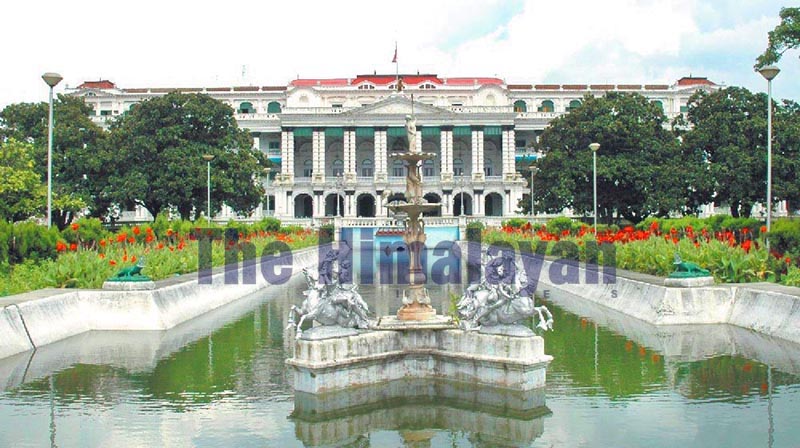Retrofitting of western facade within a week
70pc work on Singha Durbar’s north, east and south façade completed
Kathmandu, October 20
Retrofitting of western facade of the main complex of Singha Durbar is set to start within October 28. A contract for retrofitting was awarded to Sharma-Gauri-Parvati-New Technical JV.
Central Project Implementation Unit and the contractor company had concluded an agreement to this effect on October 14.
Retrofitting of northern, eastern and southern facades of the historical structure is under way. National Reconstruction Authority had awarded the contract to the private contracting firm.
CPIU Project Director Nawaraj Pyakurel said nearly 70 per cent of retrofitting of northern, eastern and southern facades was already completed.
Budget estimated for retrofitting of all facades stands around Rs 620 million. The NRA has decided to preserve the original structure of the main complex of Singha Durbar through retrofitting of its all facades. It initiated the process of retrofitting as a recent study showed that retrofitting rather than reconstruction could make it stronger without losing the building’s original architectural and aesthetic value.
According to findings of the study, there was no major damage to the walls of the building and even the bricks were robust and firmly held, leading the government not to demolish any of the facades.
However, some of the planks of wood needed to be replaced in the course of retrofitting. Archaeologists had also urged the government not to demolish the building, but renovate it by using traditional methods as its original beauty could not be retained through reconstruction following its demolition.
Retrofitting of the building will be consistent with the government’s concept of preservation of archaeological heritages and monuments. The iconic structure of the government’s administrative headquarters suffered damage during the 2015-earthquakes. The structure was built in 1908 by then Prime Minister Chandra Shumsher JBR, during the Rana regime and bears unique aesthetic and archaeological value.






